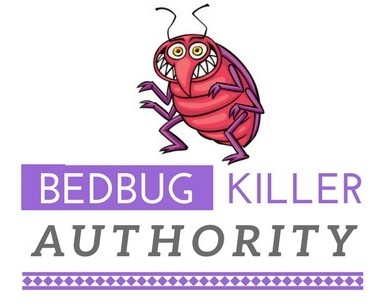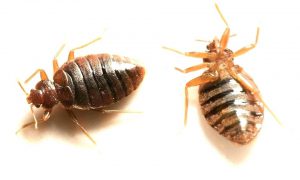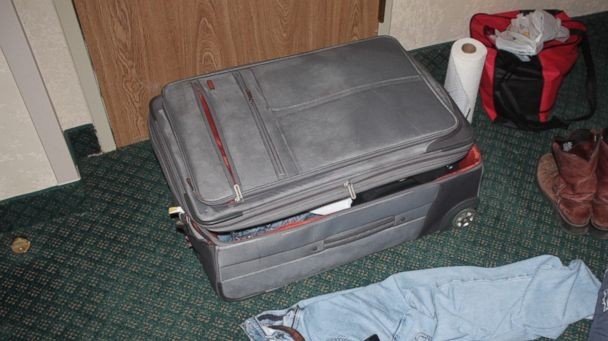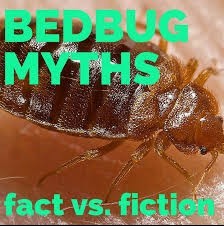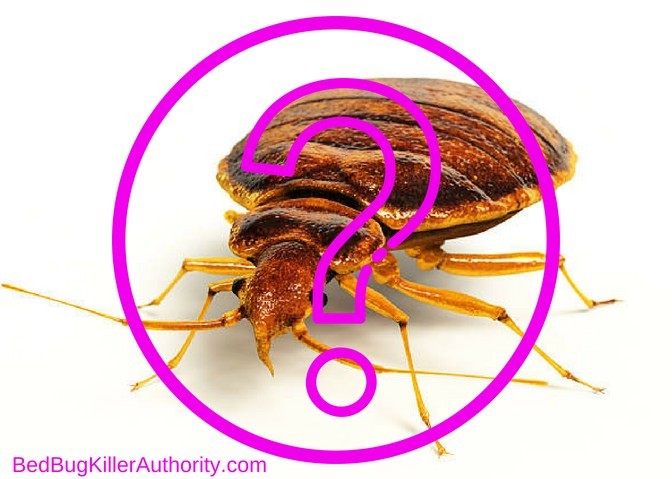
The resurgence of bed bugs has caused more than the creepy little blood suckers to come out of the woodwork.
Most people are freaked out by the idea of bed bugs, let alone actually seeing one in person.
And, of course, if you spotted one in your hotel room, you’d want to head the other way ASAP. But a new survey published in American Entomologist found that while people are completely grossed out by bed bugs, most actually have no idea what the little insects look like.
Here we have some top bed bug questions that have been asked by some of our customers.
Top Bed Bug Questions
Are Bed Bug Infestations A Sign Of Dirty Living Conditions or Is Anybody At Risk?
Infestations of common bed bugs are not directly related to sanitation levels. In all my years of eradicating bed bugs, I can be sure of one thing and that is, they do not discriminate. Luxury hotels can have them just as easily as a motel.
The cleanest living area can have a very large infestation, and improving sanitation alone will not eliminate an established bed bug population. Cluttered conditions can offer the bugs a lot of excellent harborages very near their human blood-meal hosts.
Almost anyone is at risk of having an infestation if bed bugs are brought into their home. The most important thing is to not bring them home to begin with.
Can You Get Anything Serious From A Bed Bug Bite?
According to scientists, naturally occurring populations (infestations) of common bed bugs have been documented to have at least 28 different kinds of human pathogens in their bodies.
However, very careful and detailed studies by both entomologists and medical doctors have never shown that those bed bugs could transmit (infect) even one of those pathogens to humans or lab animals.
They simply have not been shown to transmit any human disease known so far. They end up being more of a nuisance than anything else.
When a bed bug feeds, it injects saliva into its blood-meal host, and that saliva contains several proteins which can routinely cause an allergic response from most hosts. The severity and timing of those reactions depends on the bitten person’s immune response to the salivary allergens, and they can vary greatly from one individual to another.
Typical reactions to bed bug bites usually include some level of local reddening, minor swelling, inflammation and itching (which can be very intense, and can sometimes recur without another bed bug bite) at each bite site.
A person being repeatedly bitten by bed bugs can be very uncomfortable, develop lots of reddish, itchy welts (at bite sites) and often have difficulty sleeping.
The more bugs present, the more bites they inflict, and the worse the problems usually become (tending to be progressive as the bug numbers increase – usually rapidly).
Also, some people can be significantly affected by the social stigma of having a bed bug infestation in their home.
If You Are A Homeowner And Have An Infestation, Is An Exterminator Really Necessary? Can I Get Rid Of Them With A Deep Cleaning?
Most people think that you automatically have to go professional when you encounter bed bugs. Certainly in the worst case scenarios (Heavy Infestation) yes I would recommend a professional to eradicate the problem.
But, if you are reading this article, than you don’t have that big of a problem yet, so you are still in time to get rid of them yourself.
Unfortunately, cleaning alone will not usually have much impact on an established bed bug population. Successful application of chemicals to eliminate these bugs require detailed knowledge of their biology and exact harborage (hiding) locations determined by thorough inspection and research.
You must also know that you have to follow the per label instructions. Products must be used effectively, safely, and legally to control bed bugs. Under current conditions, the use of some kind of residual (long-lasting), properly labeled insecticide is needed to effectively control bed bugs in the U.S., and any practical control effort could not be carried out without use of such a product.
The U.S. EPA-approved insecticide products that are currently labeled against bed bugs must still be used properly and applied at the proper sites (in the proper formulations and concentrations) to be effective against these bloodsuckers. Regardless of any specific chemical or technique used, we must always be consistent and not deviate from the purpose which is to sleep better at night .
Why Are The Bugs Hard To Kill?
Common bed bugs are small, thin, and can hide deep in very narrow cracks. They are mainly active at night, though if the infestation is big than you will definitely see them during the day. They will routinely travel as far as a 20-foot radius from their hiding places (and back) in one night to take a blood meal.
Bed bugs are very adaptable. They move much quicker, and can pass through much smaller openings or cracks, than most people expect.
Entomologists who work with live bed bugs for the first time are often surprised. Bed bugs can detect (and often avoid) chemical deposits such as some cleaning agents. Adult bed bugs can live longer than 5 months without feeding and most labeled insecticides used against them in the U.S., Canada, Europe and Australia, do not last more than one to three months when applied.
In addition, there are reports in older literature that state that certain populations of bed bugs have developed physiological resistance to specific chemical insecticides in the past, making these products ineffective.
Although such true resistance has not been documented or reported against any currently labeled and commonly used insecticides, it could be developing in field populations and it should be screened for by professional diagnostic labs. Such testing (screening) in North America and Europe has only recently begun and has been very limited, so far.
There are some great products for eradicating Bed Bugs, we just need to make an effort to get rid of them ourselves.
If I Don’t Have An Infestation , Are There Things I Can Do To Prevent One?
Take steps to try to avoid picking up bed bugs from hotels, hostels or any other sources when you or your family members travel, even to local destinations. Do not buy used furniture (especially bedding items or upholstered items), or at least do not bring them into your home until you, have inspected them carefully for any signs of bed bugs (live or dead bed bugs, their eggs, fecal spots, or cast skins).
Also consider covering all of your mattresses and box springs with a plastic cover which you can seal shut to prevent such pests from getting into them (or to permanently trap any already there). Periodically inspect bedding and other places in your home which are typical harborage sites for bed bugs. No control efforts (or products) are needed unless an infestation is detected and verified through an inspection (How To Do Inspection Here).
If an infestation is confirmed, it is wise to consider taking action immediately and not hesitate. Educating yourself can be quite helpful and re-assuring when you have an infestation so, it is good to be informed. That way you know what to do when you have the problem.
How Would One Go About Avoiding Them At Hotels?
Inspecting fairly thoroughly for signs of bed bugs when you first arrive in a room can be very helpful. Include checking the bedding (especially near any attached type of bed headboard), the luggage holding rack, night stands by any bed (remember to check underneath and inside drawers if possible), closet shelves, dresser drawers, and along carpet edges under and near (e.g., within about 5 feet of) any bed.
It is important to report any evidence of bed bugs to the management immediately for their corrective actions. Just moving to a different room may not be the total answer. You should repeat the thorough inspection of any new or different room you are offered.
Vacuum your luggage to get rid of any bed bugs that may have hitched a ride. Take the vacuum outside and empty the contents into a plastic bag that you can seal tightly. Throw this bag away in an outside garbage bin. When you pack to leave, inspect your luggage carefully first, and inspect every item as you pack to help detect any bugs or their signs.
Laundering most cloth items with typical hot water and detergent followed by drying on high heat for at least 40 to 60 minutes (or standard dry cleaning) should kill all bed bugs in or on such items. Sealing freshly-laundered items inside a plastic bag should help keep any more bed bugs from getting in those items later to hide (and be carried back with you). Initially detecting and than eradicating the bugs is the usually the best strategy.
Bed Bugs Were Almost Eradicated Years Ago – Why Are They Back These Days?
Many factors probably have contributed to this apparently sudden bed bug resurgence. It is hard to say any one factor is the most important in every situation.
A few of the most probable factors include: much more rapid travel over greater distances on both a local and global scale (e.g., flying to or from Europe, Africa, Asia, etc., or any closer destination, in less than 24 hrs.); much less current overall public and the knowledge about these bugs, their biology and effective control strategies (i.e., most people in developed countries have only begun trying to learn about and control bed bugs in the last 3-5 years); changes in available properly-labeled insecticides to less toxic, less persistent, chemical active ingredients and formulations; and some construction practices and furniture design choices in hotels, motels, and homes.
Grossly ineffective self-help “control” practices which probably help spread infestations include: throwing out infested furniture (without any inspection or treatment to try to remove the bed bugs present) which is often picked up by someone else for their own use; leaving a room vacant for a few days as a means of getting rid of bed bugs present (this does not work and may make them migrate and spread out to find a blood meal); very inadequate partial or spot treatments by occupants of infested rooms or homes (even the use of most kinds of total-release aerosols or “bug bombs” is very ineffective); and placing infested items outdoors in either hot sun (by day) or below freezing temperatures (overnight) to kill infesting bed bugs (both of which are generally not effective).
Is The Threat Of Bed Bugs As Bad As It Appears?
Bed Bugs have definitely become more of a problem now, and there is no doubt that infestations are being reported more often and from more and more places worldwide. Currently, controlling bed bugs in most situations is certainly not a simple or easy thing to do.
It requires considerable time, technical knowledge to effectively eliminate established bed bug infestations. Occupant compliance, especially regarding reducing clutter, making infested spots fully accessible for inspection and treatment is crucial for successful bed bug control.
Under the best of situations, at least three separate applications should be expected as a minimum. Thus, the cost of hiring a professional, and related overall cost for control, is often higher than doing it yourself. Personal discomfort and the distasteful aspect of “being bitten” by these bugs can be very significant on a personal level and must be considered a growing problem for the public.
There are also a few cases of true allergy (anaphylactic reactions) being infrequently reported, and as more people are bitten or exposed to the bugs, those cases should be expected to increase, too.
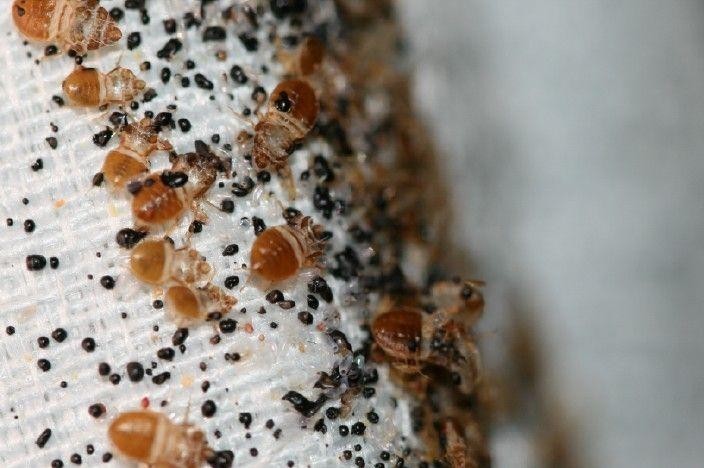
Conclusion
It can be hard to get rid of bed bugs once they are in your home. The way to avoid bed bugs is to regularly check for them and of course, the best way to avoid a bed bug infestation is prevention.
The odds of you picking up bed bugs while traveling are low, but it does happen – take a minute to do some extra precautionary steps, and you should be fine. We must be vigilant at all times. Remember to bring back souvenirs and not bed bugs from your vacation.
Thanks For Reading,
BedBugKillerAuthority
